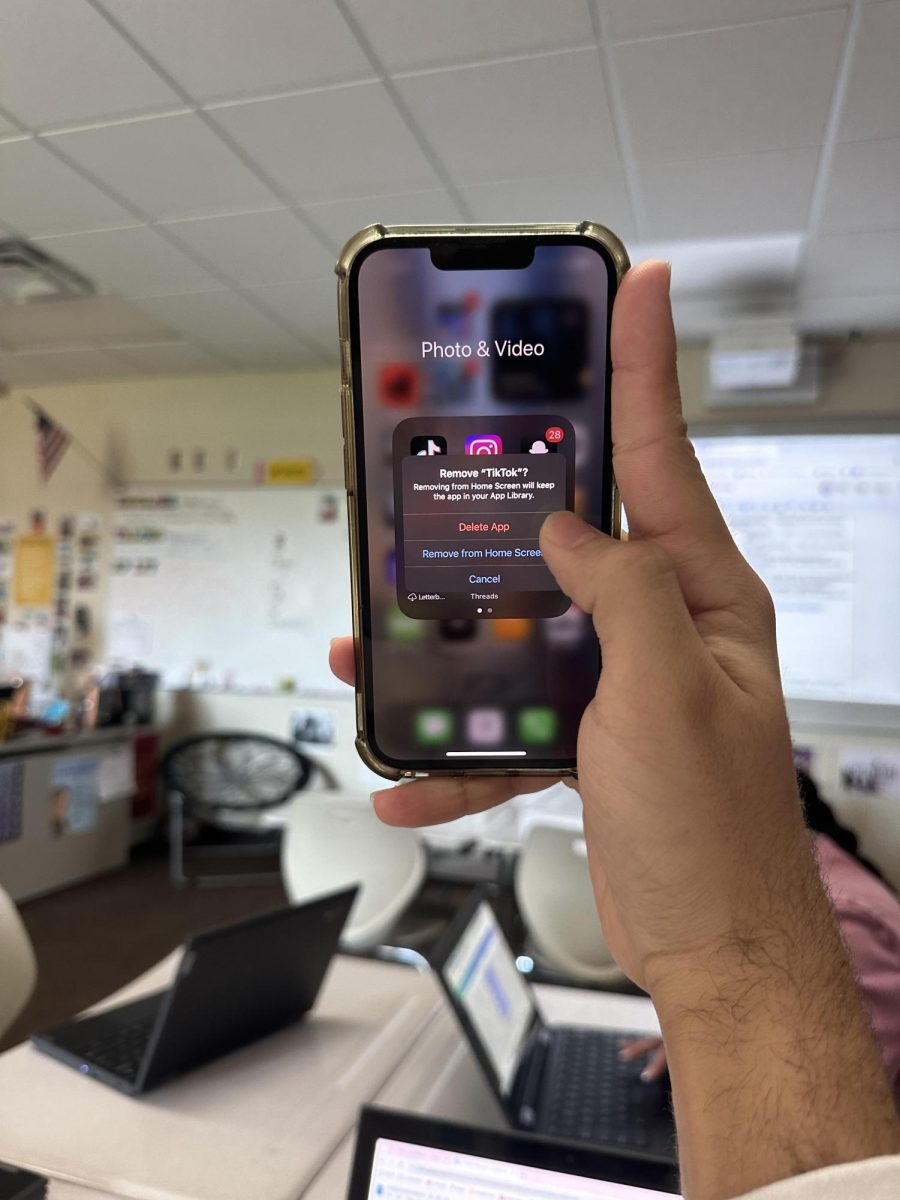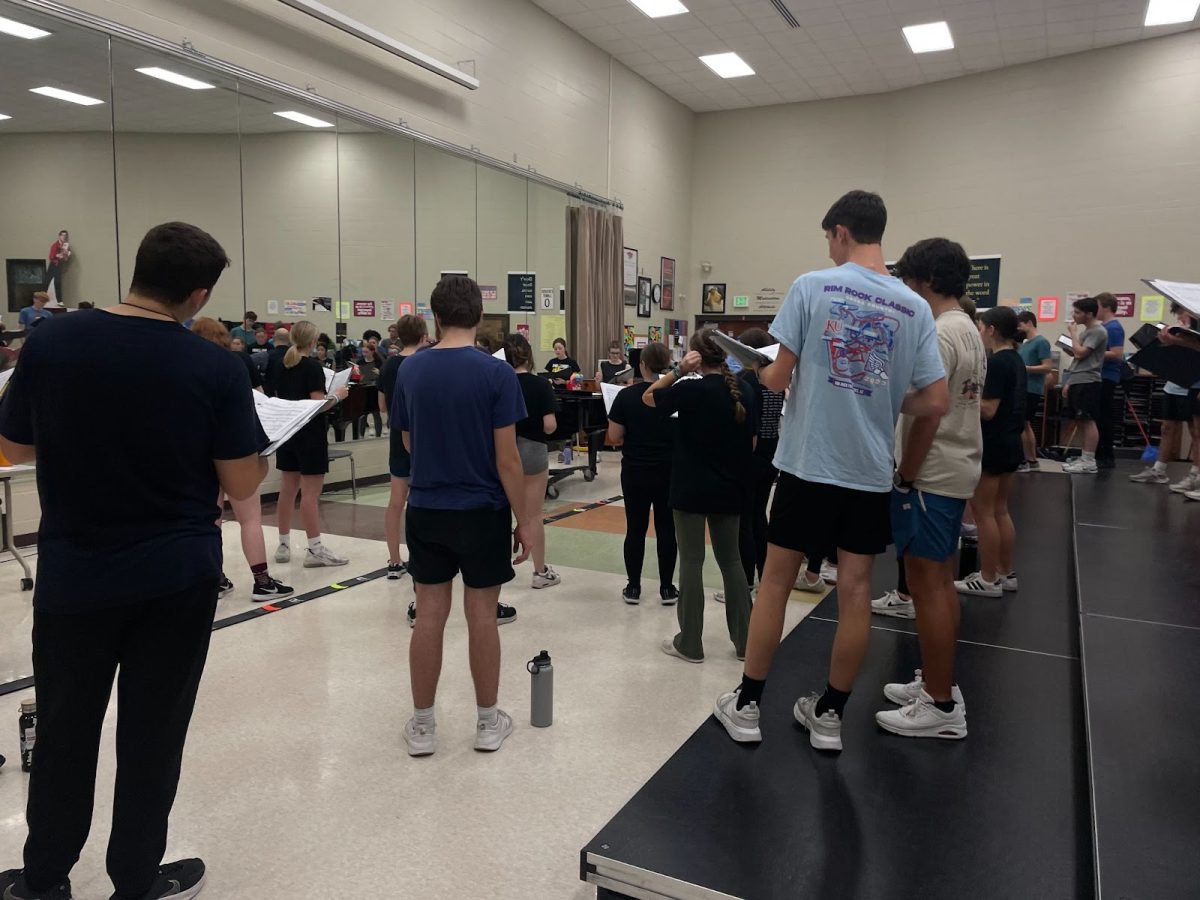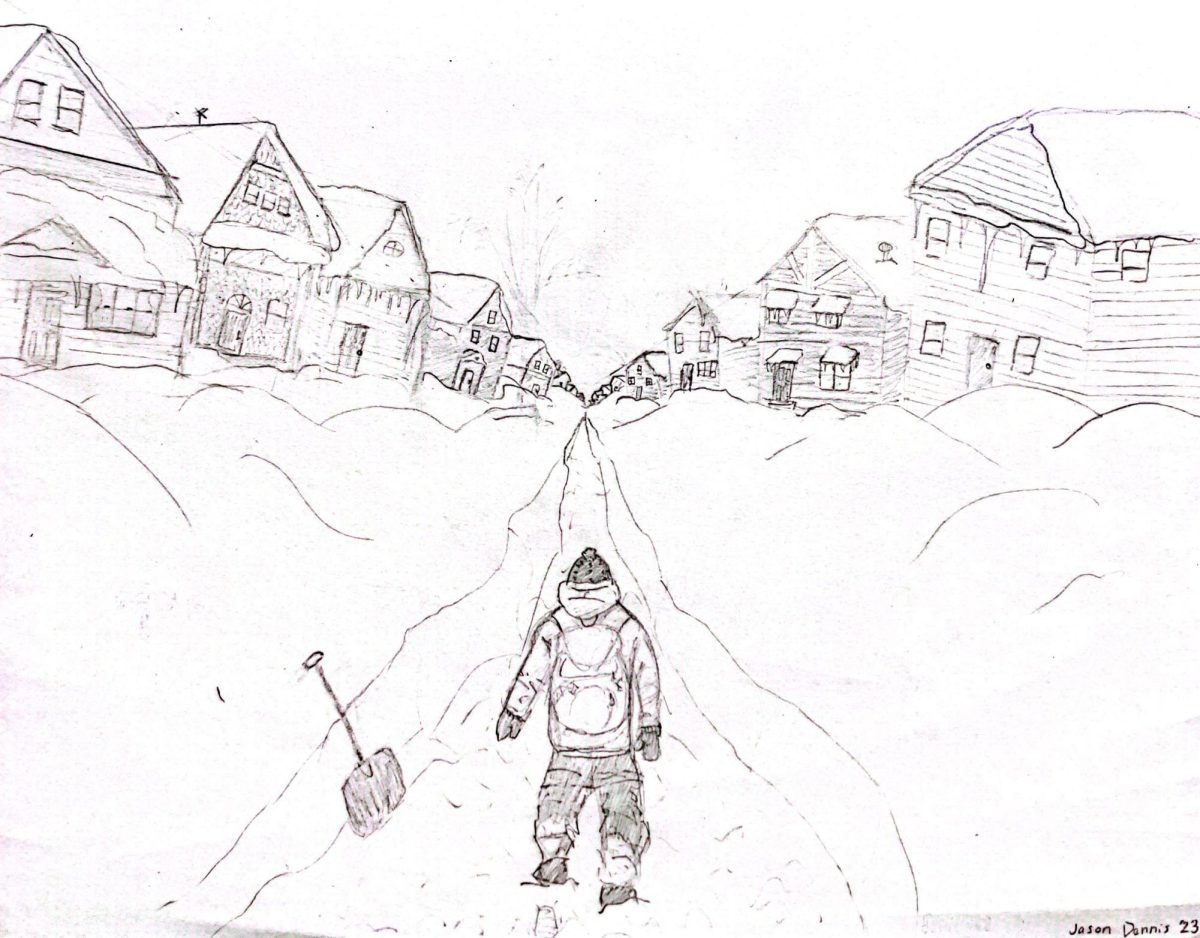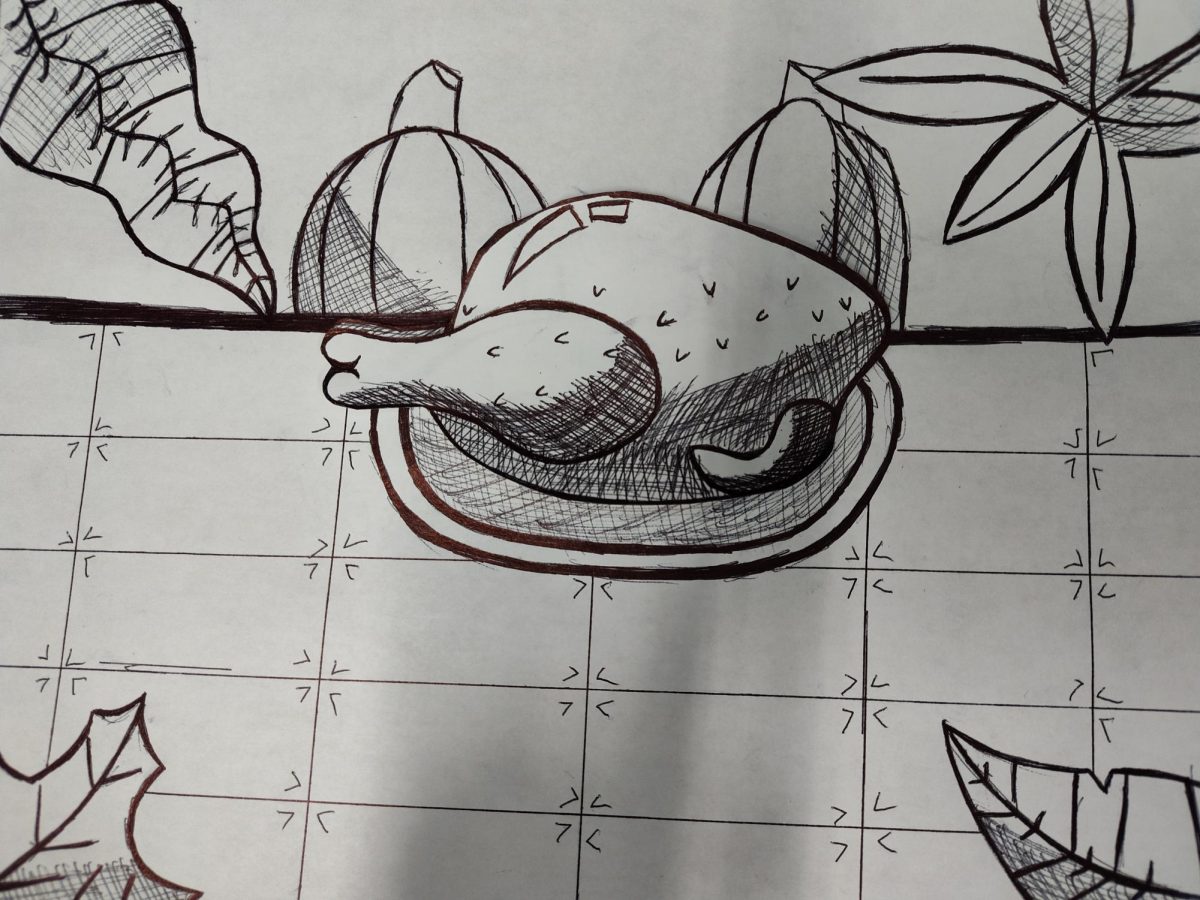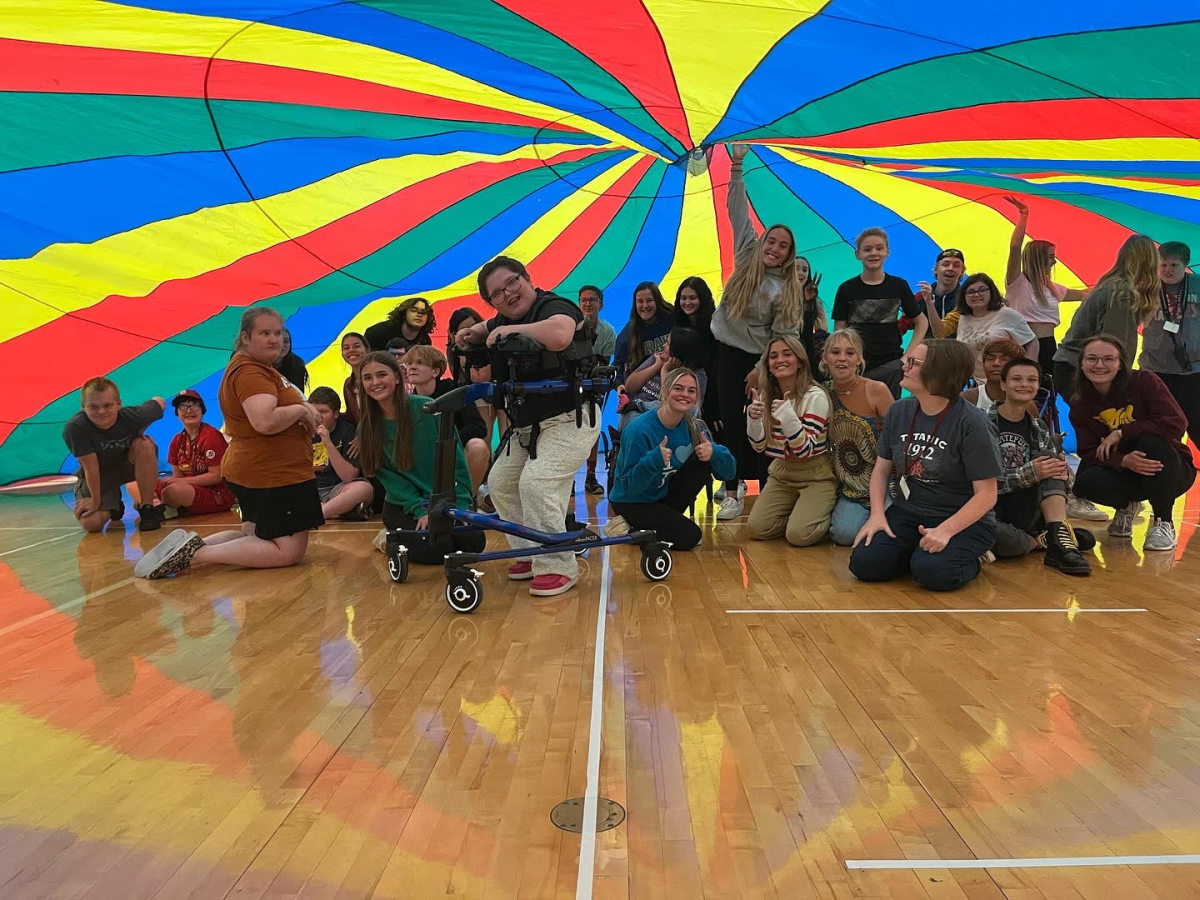Merriam-Webster defines senioritis as “an ebbing of motivation and effort by school seniors as evidenced by tardiness, absences, and lower grades.” This supposed increase in laziness and loss of motivation is foretold to hit high school seniors during the last few months of the academic year, when many students have gone through the college application process, and already have their plans for next year sorted out.
Because of this, seniors tend to look forward to their post-high school lives and get seemingly tired of the routine of high school. Common symptoms of senioritis include but are not limited to, neglecting homework, boredom in class, not studying, declining test and homework scores, an increase in missing assignments, declining grades, and lacking the motivation to attend class and do school work regularly.
However, senioritis has an unseen, deeper impact on students and an effect on the entire school. So, what does that look like? How does this affect everyone in the school?
Senior Bekkah Sherman
“I’ve always liked school, but I’m just ready to get out of here,” senior Bekkah Sherman said. “I do my work in class, but the second that there’s out-of-class work, I don’t want to do it.”
Sherman is one of the unlucky few who started noticing her senioritis symptoms earlier in the school year. She noticed the change soon, “When second semester started, that first week,” Sherman said, “I didn’t want to do work.”
Seemingly most seniors develop symptoms of senioritis after spring break, but early-onset senioritis is not uncommon. The symptoms are still the same, however, such as not doing schoolwork and the lack of motivation.
“It’s the feeling of, ‘I’ve already been accepted to college, so I don’t need to,’ but I do it anyway,” Sherman described.
Sherman noticed that actually turning in assignments after completing them has been the biggest challenge. Despite this, her grades do not falter too much.
“I wouldn’t say my grades are slipping. They go down for a period of time, but then when I turn in my assignments, they go back up,” Sherman said. “It takes me a couple weeks.”
This lack of motivation to complete assignments does not stop in the school building, for some.
“I go home and take a big fat nap,” Sherman said.
Each day spent at school can feel like an eternity when you are suffering from senioritis. It can feel like you are just going through the motions each day and are not fully locked in. Waiting the day out is key.
“Once the school day gets going, I’m fine being here,” Sherman said. “But it takes a while for it to get going.”
While Sherman certainly feels the lack of motivation in regards to academic work, she did not feel apathetic towards her extracurricular activities before they ended.
“That’s something I cared about,” Sherman said. “It’s as easy as that.”
Sherman does have some advice to beat this disease, however.
“Get good friends,” she suggested. She also explained how a support system can keep students accountable in class. “They take my phone away during class and make me do work.”
With the finish line in sight for seniors, and senioritis season in full swing, it can be difficult to make that final push to the end. Encouraging yourself to keep at it is important to beat this reportedly horrible illness.
“You’re almost there,” Sherman said. “You have almost made it [to the] finish line.”
As well as encouraging oneself, encouraging others is reportedly just as important.
“You got this,” Sherman encouraged. “End on a high note.”
World history and economics teacher Ben McQuade
“The weeks after spring break is when it really starts to get noticeable,” world history and economics teacher Ben McQuade said. “This year it seems like it kind of waited until about mid April, so just a few weeks ago.”
Economics is a class that all students are required to take during their senior year. Because of that, McQuade is no stranger to seeing his classrooms full of seniors suddenly contract senioritis.
“…specifically after Prom, it really started to go downhill,” McQuade said. “…because people realize the end is in sight.”
Once that time of year hits, the disease quickly affects students with some symptoms starting sooner than others.
“Attendance for one,” McQuade said. “And just more kids needing reminders about phone usage during certain parts of the day to get them refocused.”
In addition to a rise in phone usage during class time, and students missing school to stay home and recover from the illness, additional symptoms of senioritis start to show up later.
“More side conversations and things like that,” McQuade said. “Work time is not being used as well as it was at the beginning of the semester.”
McQuade also notices a correlation between senioritis and students’ grades.
“Some kids, there’s a dip at the end of the year from where they were at leading to when it kind of kicked in,” McQuade said.
But in the end, some students are able to overcome the senioritis and finish the year strong.
“…most of the kids that it does impact are kids that end up caring about their grades,” McQuade said. “So towards the end, they’ll kind of buckle down on our final unit assessment and things like that to try to make up for it.”
In order to accommodate for the sudden spike in senioritis cases, McQuade has had to make changes to how he teaches in the last few months of the school year.
“I’ll have one day a week where I usually try and deliver heavy content,” McQuade said. “And then other days of [the] week where it’s just ten, fifteen minutes at most of content.”
Despite the adjustments in teaching style, McQuade still finds that teaching seniors during second semester can be difficult.
“It’s challenging sometimes, yes, this time of year,” McQuade said. “But all grades kind of have their own version of senioritis because everyone’s excited to be done for the year.”
However, even after high school, McQuade feels that the lingering effects of senioritis may come back to haunt students once the weather starts to warm up.
“When you’re in your full-time job, you’re still going to be excited about the weather when it gets closer to summer,” he said. “If you decide to go to college over the next four years, you’re going to be excited this time of year.”
With this suggestion that senioritis may be linked to a chronic ailment that affects the entire world population, it may be trickier to manage the symptoms during higher education.
“But finals in college are going to be so much harder than what we have,” McQuade said. “So you have to be a self-starter and you have to be able to be disciplined, and use those executive skills you have to sit down, and study, and prepare for the finals or the end of the semester you may be required to do.”
Even past college, it is likely some form of a senioritis-like disease will infect students. Learning how to recover from it and manage symptoms is vital.
“It’s just one of those things. I don’t want to say ‘suck it up,’ because everyone goes through it,” McQuade said.
But for now, McQuade feels that figuring out how to get past the brunt of the disease as a senior in high school can prepare you for when you get sick again in the future. And that process starts right now.
“It won’t seem as daunting as if you just sit there and fret about it, or refuse to do anything, or just put everything off until the last minute,” he explained. “It’s going to be way less stressful if you keep on keeping on like you have been all semester, versus waiting until that last possible minute.”
Counselor Kelly Andrews
For AHS counselor Kelly Andrews, the senioritis breakout does not occur when the seasons change, but when the mindset changes.
“I notice with our seniors… things start to get really real. They’re starting to sign contracts, they’re starting to create start dates, they’re picking roommates or dorms,” Andrews said. “And so, I think when the reality starts to set in that we have two and a half months left, that’s typically when we start to see a little bit more of that.”
As a high school guidance counselor, Andrews witnesses the entire senior class fall ill every year, when that change in mindset sets in.
“Honestly, I think it is unique to each student. Typically, after spring break,” Andrews observed. “People are returning, they’re ready for school to be over.”
Once the senioritis virus infects the senior class, the effects can be pretty noticeable.
“…I think that you would see the quality of work decline,” Andrews said. “Simply because students realize that maybe they cared a lot about earning high grades and then all the sudden [they realize] this doesn’t matter anymore.”
When the outbreak occurs, symptoms are observed amongst the entire senior class.
“I think that naturally some of the tendencies when it comes to senioritis would be procrastination.,” Andrews said. “I think that students tend to procrastinate, which means they have less time to prepare, [less time] to create quality work or to actually study in some of those senses.”
However, aside from the typical senioritis symptoms, Andrews observes a shift in mental health among the infected, with the end of a chapter in life now in sight.
“Any type of different adjustments [or] big impending changes can create angst,” Andrews said. “The unknown can be really unsettling for a lot of students. And so that alone, even though they’re excited and they say they want to be done, that unknown can be really overwhelming for students.”
In addition to the looming unknown rapidly approaching seniors, the end of the year is a busy time.
“If you look at the month of May, and you look at all the activities, extracurriculars, expectations, tests, even awards night and ceremonies, and things… there’s a lot of things,” Andrews said.
The combination of everything happening for seniors in the final months of school can take a toll on their mental health.
“I think that anxiety can be exacerbated,” Andrews said. “I think that if students have depressive symptoms, those can become overwhelming at times because there’s a lot. It feels like a lot.”
Luckily, there are preventative measures to avoid the full force of senioritis and its mental effects.
“Setting realistic expectations of what actually is your end goal,” Andrews recommends. “I think the second thing is for students to give themselves a lot of grace.”
Above all, Mrs. Andrews feels that giving grace to yourself and others is one of the most effective ways to mitigate the effects of senioritis and its mental toll.
“You’ve never done this before. You’ve never been a senior before. You’ve never done this,” Andrews said. “There’s so much to be said about being kind to yourself in this season because you’ve never done it before.”
Andrews also feels that others can help someone suffering from senioritis and end of the year stress.
“Have a support system for sure,” Andrews explained. “I think that that support system and accountability, whether it’s at home with your family, your peers, or even your teachers to say ‘Hey, this is what I need support with,’ asking for help, being willing to ask for help from your teachers.”
But of course, taking care of oneself is the utmost priority when one has contracted senioritis. Whether you are struggling with senioritis right now, or know someone fighting it, students are in the throes of senioritis season.
“It’s making sure that you’re getting sleep, it’s making sure that you’re drinking enough water, that you’re nourishing your body. With the weather being nicer that you’re getting some type of movement that you enjoy,” Andrews explained. “Those types of things help keep you a human when there’s so much happening and it can be really easy to shut down.”
And just remember, the school year is just about over.



